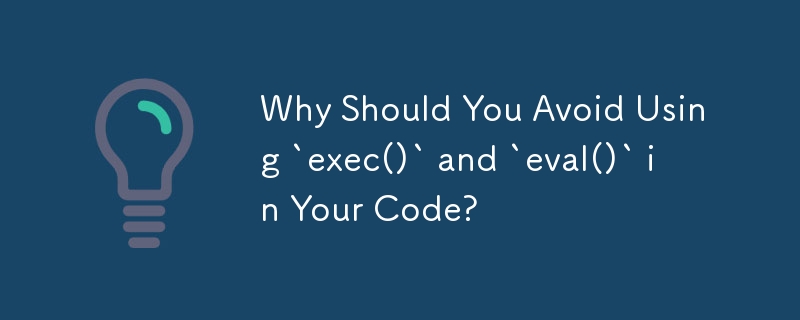

Why Should You Avoid Exec() and Eval() in Programming?
The use of exec() and eval() functions in programming has often been discouraged for various reasons. Let's delve into these reasons to understand why it's generally advisable to steer clear of them.
Lack of Clarity and Testability
Exec() and eval() introduce a level of indirection into code. By executing strings that contain code, the meaning and behavior of the program become less obvious. This makes it difficult to follow the flow of execution and test the code effectively.
Consider the following example:
s = 'object.fieldName = int(%s)' % fieldType exec(s)
If a bug occurs within the executed string, the stack trace will not point to the source of the problem, making it challenging to debug.
Alternative Approaches
In most cases, there are clearer and more direct ways to achieve the desired outcome without resorting to exec() and eval(). For example, the code snippet above can be rewritten explicitly:
object.fieldName = int(fieldType)
By avoiding exec() and eval(), code becomes more maintainable, readable, and easier to debug.
Insecurity Concerns
In web applications, unsanitized strings can be passed to exec() or eval(), posing a security risk. Malicious input can lead to code execution, allowing attackers to gain unauthorized access or compromise the system.
While these risks may not be as prevalent in non-web applications, it's still advisable to avoid exec() and eval() due to their inherent complexity and the potential for unintended consequences.
The above is the detailed content of Why Should You Avoid Using `exec()` and `eval()` in Your Code?. For more information, please follow other related articles on the PHP Chinese website!




